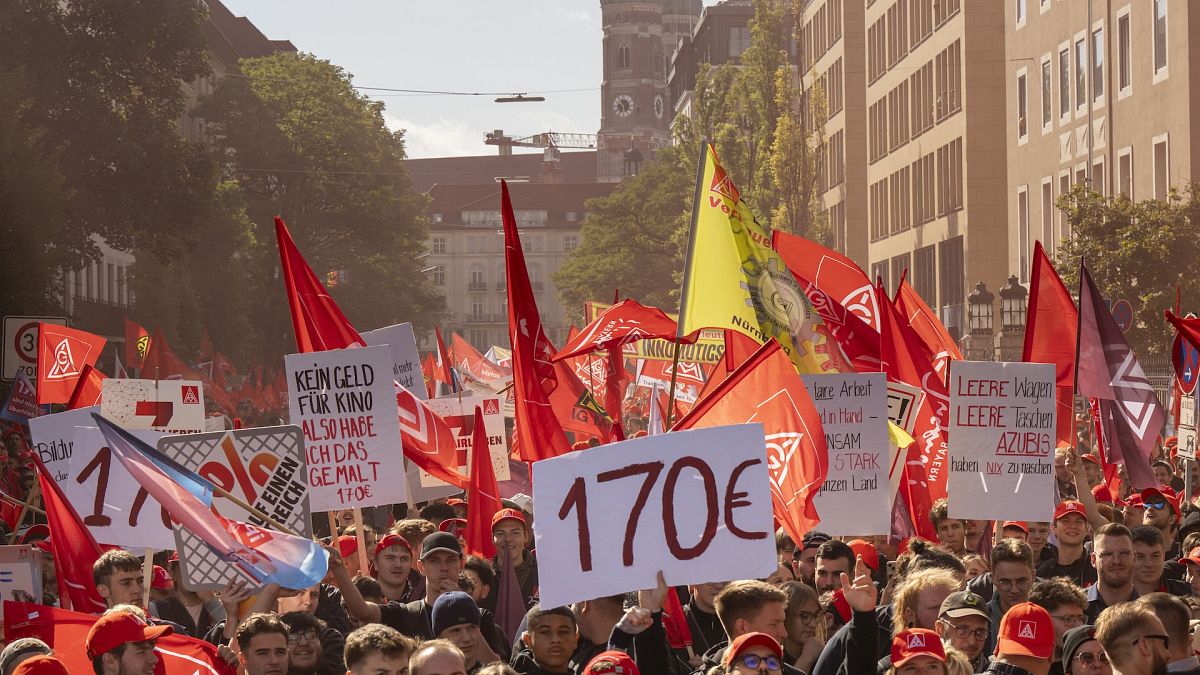Germany’s economic sentiment plunged to an 11-month low in September, with the ZEW index dropping sharply. Economic outlook worsened across key German industries, impacting the broader eurozone morale.
Germany’s economic outlook took a dramatic and unexpected downturn in September, signalling a deepening slump in confidence for the eurozone’s largest economy.
The ZEW Economic Sentiment Index, a key measure of the economic morale held by financial experts, dropped from 19.2 points in August to just 3.6 points in September, well below forecasts of 17 points. This marks the index’s lowest level since October 2023.
The sub-index measuring current conditions fell sharply to -84.5 points, down from -77.3 points in August and significantly below expectations of -80 points. It is the weakest reading since May 2020.
“The hope for a swift improvement in the economic situation is visibly fading,” ZEW President Achim Wambach said.
Expectations for the next six months have worsened across most industries, with the steepest declines seen in mechanical engineering, steel, automotive, and banking. Conversely, construction, utilities, and telecommunications sectors experienced a more optimistic outlook.
The malaise in Germany’s economy also affected the broader eurozone, where the ZEW sentiment index dropped from 17.9 points to 9.3 points in September, missing the anticipated 16.3 points and also hitting lowest in nearly a year.
“Although the falling economic expectations for the eurozone point to an overall rise in pessimism, the drop in expectations for Germany is significantly greater. Most respondents appear to have already factored the interest rate decision into their expectations,” added Wambach.
On Monday, European Central Bank (ECB) Governing Council member and Slovakia’s central bank chief, Peter Kazimir, dismissed hopes for a consecutive interest rate cut in October, suggesting that December would be a more likely time-frame.
“It would require a significant shift, a powerful signal, concerning the outlook to consider backing another cut in October,” Kazimir said.
Germany’s automotive sector falters
Germany’s car industry continues to face significant challenges, as reflected in the poor market performance of major automaker shares.
Year-to-date, the top four German car makers have seen double-digit declines: Mercedes-Benz AG is down 10%, Porsche AG has dropped 15%, Volkswagen AG is off by 17%, and BMW has plunged 28%, with the latter issuing a profit warning last week.
These companies have lost market share in the electric vehicle market, where Asian competitors, particularly BYD, have made substantial gains.
Market reactions
European assets showed muted reactions to the ZEW report, with slight declines in bond yields and the euro, while equities largely maintained their gains for the session.
The euro traded at 1.1138 against the dollar, unchanged for the day, ahead of the closely watched Federal Open Market Committee (FOMC) meeting, which is expected to announce an interest rate cut on Wednesday.
However, uncertainty remains regarding the size of the cut.
Investors currently see a 67% probability of a 50-basis-point reduction, compared to a 33% chance of a smaller 25-basis-point cut, as per CME FedWatch tool.
Bund yields fell to 2.10% on Tuesday, set to close at their lowest level since early January 2024.
German stocks edged up, with the DAX rising 0.6%. Zalando SE led the gains within the index, climbing over 5%, followed by Infineon AG, up 2.2%, and Siemens, up 1.7%.
The broader Euro Stoxx 50 index rose 0.8%, with Kering, Banco Santander, and Vivendi delivering the day’s best performances among large-cap European companies, rising 2.1%, 2%, and 1.8%, respectively.
Checkout latest world news below links :
World News || Latest News || U.S. News
The post Germany’s economic sentiment takes a dramatic fall as outlook worsens appeared first on WorldNewsEra.

